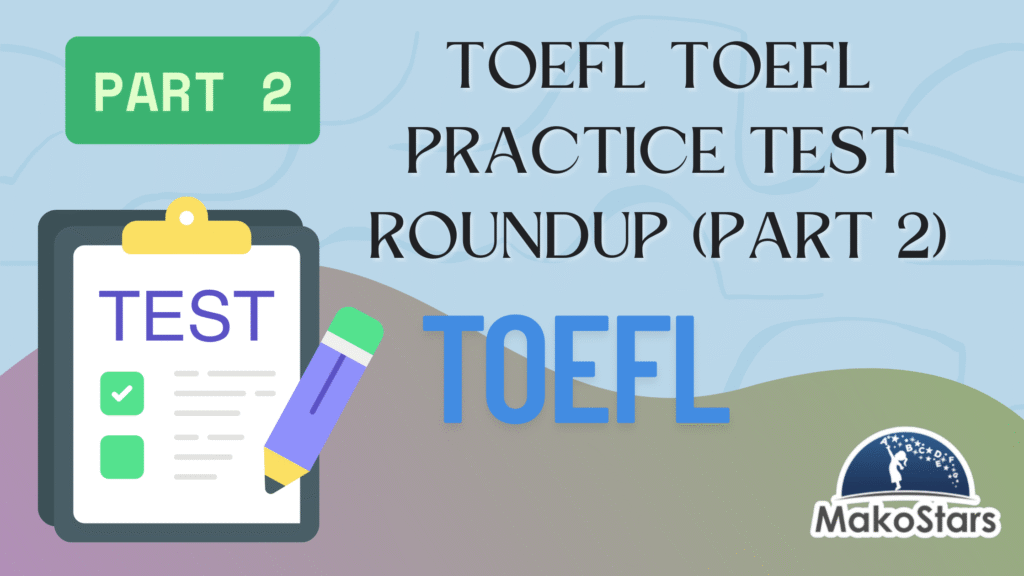English and Social Media: Effective Strategies for Language Learning
Table of Contents
Introduction
English for Academic Writing is a critical skill that enables you to effectively communicate your ideas and research findings in essays and papers, ultimately contributing to your academic success and advancement in your chosen field.
Whether you’re a student, a researcher, or an aspiring scholar, honing your English writing skills can open doors to new opportunities and help you excel in your academic pursuits.
Mastering the art of academic writing not only demonstrates your command of the English language but also showcases your critical thinking, research, and analytical abilities.
By developing a strong foundation in English proficiency, you can craft compelling essays and research papers that captivate your audience, convey your ideas with clarity, and leave a lasting impression on your instructors or peers.
Understanding the structure and components of essays and research papers
Academic writing, such as essays and research papers, follows a specific structure and includes several key components that you must understand and incorporate. Essays typically consist of an introduction, body paragraphs, and a conclusion, while research papers often include an abstract, introduction, literature review, methodology, results, discussion, and conclusion.
Familiarizing yourself with the expected format and elements of these academic documents will help you organize your thoughts, present your ideas in a logical and coherent manner, and meet the expectations of your instructors or the academic community.

Developing a strong thesis statement
At the heart of any well-written essay or research paper is a strong, well-crafted thesis statement. Your thesis statement serves as the central focus of your work, guiding the overall direction and structure of your document. Crafting a clear, concise, and thought-provoking thesis statement is crucial, as it sets the tone for your entire piece and helps you maintain a focused and cohesive argument throughout.
When developing your thesis statement, consider the following:
- Clearly articulate your main argument or central idea.
- Make it specific and focused, avoiding broad or vague statements.
- Ensure that your thesis is supported by the evidence and analysis presented in your paper.
- Refine and revise your thesis statement as your writing progresses to ensure it accurately reflects the content of your work.

Conducting thorough research and finding credible sources
Effective English for Academic Writing is built upon a foundation of thorough research and the use of credible, reliable sources. Developing strong research skills is essential, as it allows you to gather the necessary information, data, and evidence to support your arguments and claims.
When conducting research for your essays and papers, consider the following strategies:
- Utilize a variety of sources, including academic journals, books, reputable websites, and primary sources.
- Evaluate the credibility and reliability of your sources, looking for indicators such as author credentials, publication date, and the reputation of the source.
- Take detailed notes and carefully document your sources to ensure accurate citations and references.
- Synthesize the information you gather to develop a comprehensive understanding of the topic and to identify gaps or areas for further exploration.

Organizing and outlining your ideas
Organizing your ideas and creating a well-structured outline is a crucial step in the academic writing process. A well-organized essay or research paper not only helps you communicate your ideas effectively but also demonstrates your ability to think critically and logically.
When organizing your work, consider the following:
- Develop a clear, overarching structure that guides the flow of your document.
- Organize your ideas and arguments in a logical sequence, with each section or paragraph building upon the previous one.
- Use headings, subheadings, and transitions to create a cohesive and easy-to-follow document.
- Ensure that your outline reflects the key points and arguments you plan to make, and that it aligns with your thesis statement.

Writing an effective introduction and conclusion
The introduction and conclusion of your essay or research paper are crucial components that frame your work and leave a lasting impression on your reader. A well-written introduction should capture the reader’s attention, provide necessary background information, and clearly state your thesis. The conclusion, on the other hand, should summarize your key points, reinforce your argument, and leave the reader with a lasting impression.
When crafting your introduction and conclusion, consider the following:
- Use engaging and thought-provoking language to grab the reader’s attention.
- Provide relevant context and background information to set the stage for your argument.
- Clearly state your thesis statement and the main points you will address.
- Summarize your key arguments and findings in the conclusion, and offer a final, compelling perspective.
- Avoid introducing new information or ideas in the conclusion, as it should serve as a concise, final reflection on your work.

Crafting well-structured paragraphs
Well-structured paragraphs are the building blocks of a successful essay or research paper. Each paragraph should focus on a single idea or argument, and it should be organized in a clear and coherent manner. Effective paragraphs typically include a topic sentence, supporting details, and a concluding sentence that transitions to the next paragraph.
When writing your paragraphs, consider the following:
- Clearly state the main idea or argument in your topic sentence.
- Provide relevant examples, evidence, and analysis to support your claims.
- Use transitional phrases and sentences to guide the reader through your argument and create a smooth flow between paragraphs.
- Ensure that each paragraph is well-developed and contributes to the overall structure and coherence of your document.
Using proper grammar, punctuation, and syntax
Proficiency in English grammar, punctuation, and syntax is essential for producing high-quality academic writing. Proper use of these linguistic elements not only enhances the clarity and readability of your work but also demonstrates your attention to detail and your command of the English language.
When writing your essays and research papers, pay close attention to the following:
- Grammar: Ensure that your sentences are grammatically correct, with proper subject-verb agreement, correct verb tenses, and appropriate use of parts of speech.
- Punctuation: Use punctuation marks, such as commas, periods, and semicolons, correctly to enhance the readability and flow of your writing.
- Syntax: Construct your sentences in a clear, logical, and concise manner, avoiding overly complex or convoluted structures.
Regularly reviewing and editing your work for grammatical, punctuation, and syntactical errors can help you produce polished, professional-quality academic writing.
“The Elements of Style, Fourth Edition” by William Strunk Jr. and E.B. White remains an invaluable resource for academic research and essays, offering timeless guidance on clear, concise writing that can significantly enhance the quality and impact of scholarly work.
Incorporating evidence and citations
Effective academic writing requires the incorporation of credible evidence and proper citation of sources. By including relevant research, data, and expert opinions, you can strengthen your arguments, demonstrate your understanding of the topic, and provide a solid foundation for your claims.
When incorporating evidence and citations, consider the following:
- Carefully select and evaluate the sources you use to ensure they are reliable and relevant to your topic.
- Integrate quotes, paraphrases, and summaries from your sources to support your arguments and claims.
- Correctly format your in-text citations and reference list according to the appropriate academic style guide (e.g., APA, MLA, Chicago).
- Ensure that your use of evidence is seamless and that it enhances the overall flow and coherence of your writing.
Editing and revising your work
The process of academic writing does not end with the initial draft. Effective writers understand the importance of editing and revising their work to ensure it meets the highest standards of quality and clarity. By carefully reviewing and refining your essays and research papers, you can identify and address any weaknesses, improve the overall structure and organization, and polish your language and style.
When editing and revising your work, consider the following:
- Review your writing for clarity, coherence, and logical flow.
- Check for grammatical, punctuation, and spelling errors.
- Verify that your citations and references are accurate and properly formatted.
- Ensure that your writing is concise, avoiding unnecessary wordiness or repetition.
- Seek feedback from peers, instructors, or writing tutors to identify areas for improvement.
- Implement revisions and refinements to produce a polished, professional-quality document.

Resources and tools for improving English proficiency in academic writing
Developing and refining your English proficiency for academic writing can be a continuous process, and there are numerous resources and tools available to support your efforts. From online writing guides and grammar handbooks to language-learning apps and tutoring services, you can access a wealth of information and assistance to enhance your skills. Some helpful resources and tools include:
– Online writing guides and style manuals (e.g., Purdue OWL, The Economist Style Guide)
– Grammar and punctuation resources (e.g., Grammarly, The Chicago Manual of Style)
– Language-learning apps and websites (e.g., Duolingo, Babbel)
– Academic writing workshops and tutoring services
– Peer review and feedback from classmates or English centers.
For those seeking a more personalized approach, language schools like BumbleB English offer tailored English lessons for various proficiency levels. Located in Setagaya, Tokyo, BumbleB English provides both in-person and online classes for children and adults, focusing on academic and professional English skills.
Their experienced instructors work with students to build confidence and ambition in English communication, which can be particularly beneficial for those preparing for international academic pursuits or careers.
By leveraging these resources and tools, you can continually improve your English proficiency, refine your academic writing skills, and set yourself up for success in your educational and professional pursuits.
Conclusion
Mastering the art of academic writing through English proficiency is a fundamental skill that can unlock your potential for success in the world of higher education.
By understanding the structure and components of essays and research papers, developing a strong thesis statement, conducting thorough research, organizing your ideas, and honing your language skills, you can craft compelling and impactful academic documents that showcase your critical thinking, analytical abilities, and command of the English language.




![12 Basic Grammar Rules to Write Like a Pro [2025 Guide]](https://englishlearninghub.online/wp-content/uploads/2025/07/12-Basic-Grammar-Rules-to-Write-Like-a-Pro-2025-Guide-1024x576.png)

